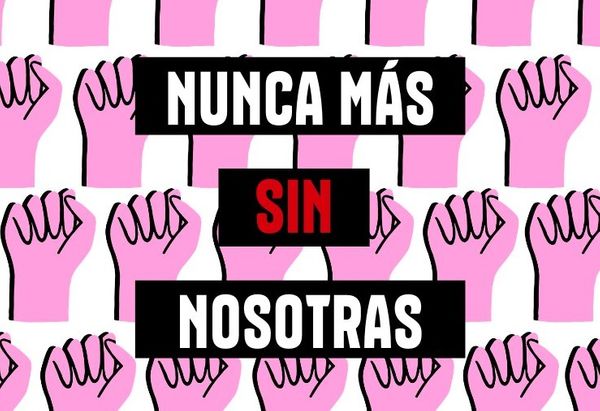FGM and the Questions It Raises - by Camille Saunders
TW: contains mention of violent practices. The only description is a medical definition that has been left to the reference section at the bottom so you only have to read it as a choice.
This week seems an appropriate time to launch our new column on the NOUS Blog about women in global politics, both as the advocates and the victims of it. This is because since 2012 the UN has declared Monday 6thFebruary to be the International Day for Zero Tolerance of Female Genital Mutilation (FGM: please find the WHO definition below[1]), and it is a trauma that persists not only worldwide but also here in the UK. According to the World Health Organisation, more than 200 million girls and women alive today are survivors of FGM, largely focused in 30 countries across Africa, the Middle East and Asia where FGM is still a tradition. For reference, that is nearly 4 times as many victims as the total number of people who live in England.
In a BBC article from this weekend, Sarian Karim-Kamara describes her journey from being an eleven-year-old girl in Sierra Leone being excited for this secret ritual that would make her a ‘real woman’, the aftermath of the experience, and the awareness that she has raised for the practice still existing in the UK.[2]This spans from keeping posters in her shop about FGM and running education workshops for her local communities, to setting up an organisation called Keep the Drums, Lose the Knife (KDLK) to help survivors discuss their trauma. She has even personally trained hundreds of frontline professionals to appreciate better what victims are going through, in terms of spotting potential victims in vulnerable areas like airports or long-distance train stations, exploring the medical repercussions, and empathising with emotional responses to the mix of cultural pressures.
In England, Det Con Squires, who was appointed an MBE in 2018 for her work solving these cases and rescuing potential victims, says that the police used to receive very little training on the matter of FGM and other harmful practices such as forced marriage and “honour”-based abuse. However, the police has been called to improve their responses to these crimes since the murder of Banaz Mahmod in 2006, a twenty-year-old victim of FGM from south London whose father and uncle ordered her killing after she left her abusive husband. From her years of experience dealing with these cases, she says “it’s all about chastity. It’s all about the honour of the family, the honour of the individual.”[3]
All of these descriptions, from the WHO, Sarian Karim-Kamara and Det Con Squires raise awareness for the issue, but they also raise deeper questions about the role of women worldwide and in the UK. For example, the fact that the vast majority of the cases are in Africa, the Middle East and Asia points to a stark divide in the female experience based on socio-economic geography, as these are continents with historically higher rates of poverty, suggesting another example of a link between economic instability and violence against women. However, in the UK, this is often translated into a xenophobic rhetoric of neo-colonial moral superiority, and a quick way to alienate immigrant communities by painting them as violent and ‘backwards’, thus making it harder to open an honest conversation about how FGM is a human rights abuse, violating the human rights of the child, and the right to live free from harm. This in turn, however, creates a very modern problem of condemning another’s cultural practice, but for completely valid reasons, which can be a difficult line to toe.
Similarly, it brings up the question of “real” women and what that really means. For anyone who has watched Pedro Almodóvar’s film ‘All About My Mother’, the speech about becoming your authentic self comes to mind (and for anyone who hasn’t, I would 100% recommend you watch it, it’s too beautiful to miss). However whether you believe that a woman is as she is born, or that she needs to be ‘made’ somehow in order to gain womanhood like a title, I hope we can all agree that it should only ever be the choice of the individual in question. Furthermore, disfiguring natural female genitals will never ‘make’ someone into more of a woman, nor a cleaner or more honourable woman, because there is nothing unclean or dishonourable about the human body. Not only does this teach the young victims of this practice that they are fundamentally incomplete until they can be “fixed” by a man (though there are plenty of female FGM practitioners too), but it also suggests that harming a child can ever be justified. It can’t.
Furthermore, the existence of honour killings in the world, which are much more often carried out by men, be they relatives or community leaders, is perhaps the biggest set back to global gender equality, because with the knowledge that this many men exist capable of believing in this practice, let alone enacting it, is enough to keep generations of women in fear of the men around them.
Finally, the role of “chastity” and “honour” in these practices are nothing but a façade to harm women and lie to communities about it being for the benefit of anyone, let alone everyone. We can also point out that in cultures where the aim is to remove the clitoris, be it nature or a deity, something has created women with the one organ whose sole purpose is pleasure, and the patriarchy left to its own device has opted to remove it, no matter the list of painful problems it is replaced with.
All of these tensions between external cultures may seem difficult to navigate in the UK in terms of condemning the crime, perhaps even the culture, but not the people who belong to that culture indiscriminately. However, it is here we should perhaps remind ourselves that when it was the case for xenophobic rhetoric surrounding Brexit, flying refugees to Rwanda, sinking migrant boats in the channel, overcrowding refugee processing centres, not investigating the children who have been abducted from these centres, not to mention deportations, lack of health care and paperwork for the Windrush generation and their families, the British government’s respect for subtleties in respecting foreign cultures has been lacking, to say the least. Therefore, the fact that it would suddenly apply as an excuse to be less rigorous when preventing and prosecuting some of the worst crimes facing this country, which these all are, shows that the range of violent crimes affecting women, much like we’ve already seen with r*pe cases going to trial, are a much lower priority than the UK will ever care to admit.
by Camille Saunders
[1] FGM: Female genital mutilation is defined by the World Health Organisation as “all procedures that involve partial or total removal of the external female genitalia, or other injury to the female genital organs for non-medical reasons”
[2+3] ‘FGM: “I’ll save another girl by talking about female genital mutilation”’, Clare Lissaman, BBC News, 2023




